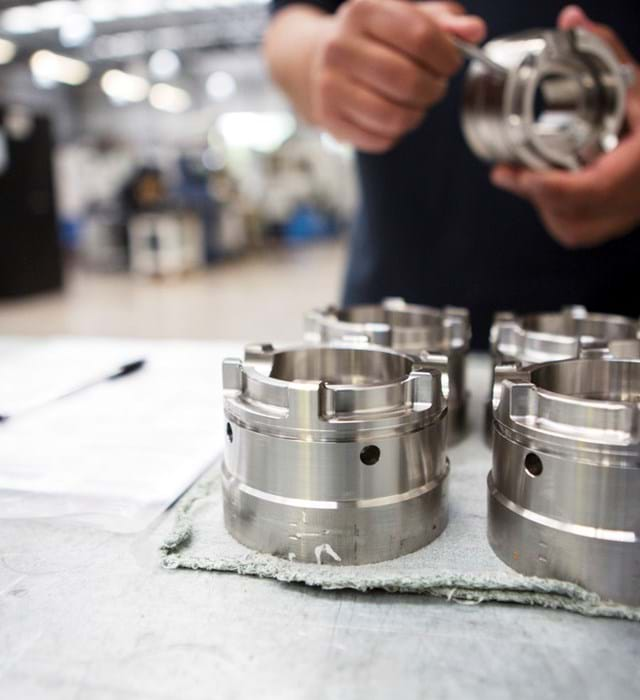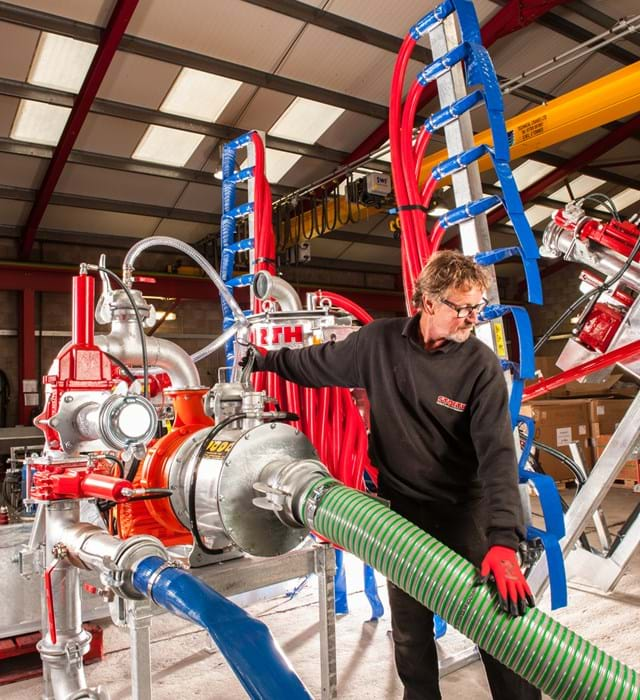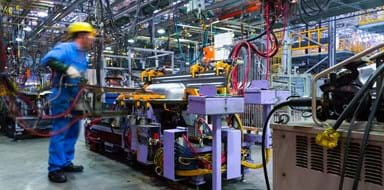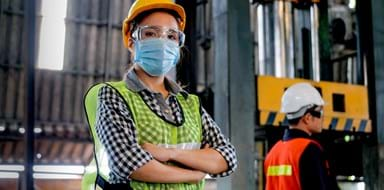Beverston Engineering, based in Knowsley, is a precision component manufacturer, specialising in the prototyping and manufacture of state-of-the-art engineering components for a wide range of industries.
These include aerospace, oil & gas and pharmaceutical industries where safety and accuracy are critical requirements.
With the support of Made Smarter, it has designed a digital roadmap, invested in technology which provides real-time visibility of its manufacturing, and brought in new skills to accelerate data-led decision-making for future projects.
As a result, Beverston has increased machine availability by 17%, reduced quality planning and reporting times by 72%, reduced carbon emissions by 10% and increased profitability, all while weathering the economic and social shocks of the pandemic, Ukraine war and rising costs.
The new system will also be able to store data captured in the early phases of the project for future analytics, which can be used for predictive maintenance and diagnostics for even more gains.
Roderick Wah, Managing Director
Launched in 1974 to manufacture toolmaking, the business has been under the ownership of Rod Wah since 1981. He has developed new opportunities in the aerospace industry and expanded into sectors like pharma, oil and gas, and power.
Beverston began exploring how technology could help its growth in 2017 with a knowledge transfer partnership with Liverpool John Moores University. It put the business in a position to grasp the opportunity to develop a digital strategy with Made Smarter.
A digital transformation workshop identified Beverston’s key challenge as its lack of connectivity between the factory floor and its ERP.
The first project in 2020 laid the foundations for connectivity, upgrading IT infrastructure with a dedicated machine data server to run the platform that collects data on state, current product, and maintenance status.
Beverston also installed IIoT sensors to monitor the factory environment, giving another layer of data to contextualise analytics to the working conditions of machining assets. The new infrastructure facilitates real-time asset monitoring, efficient handling and storage of big data.
Beverston created a ‘productivity control room’ - a bank of 18 big screens in the centre of the factory displaying real-time factory analytics, such as machine downtime events, availability, and performance metrics to the workforce. This can also be monitored remotely via a smartphone or tablet.
A second project in 2022 integrated the Intelligent Factory system from Datahone at an early adopter stage where Beverston’s industry 4.0 team helped extensively in development and testing.
This integrated all 20 machines and operators with its ERP and third-party systems.
The project aimed to reduce manual data input whilst delivering a platform that gives machine operators insight into machine OEE and productive efficiency in real-time.
Made Smarter also supported Beverston to overcome the challenge it had bringing in advanced manufacturing skills through its digital technology internship programme.
Oliver Miller, a former master’s student in Aerospace Engineering at the University of Liverpool, helped integrate a new quality 4.0 management system - Inspection Manager by HighQA - which cut quality planning and reporting time by 72%.
The project was so successful he was taken on full-time and now leads Beverston’s digital transformation projects.
From 2022 to present, Beverston has been focused on leveraging the vast amount of data collected by the systems integrated in the early stages of the project.
Using Power BI, a cloud-based business intelligence system, Beverston have been able to identify cross-department trends between quality, production and machining assets, as well as identifying high waste processes, loss-making products and multi-dimensional relationships that lead to quality failure in products.
Rod admits Beverston’s digital transformation has not been easy, but the decision to commit to adopting technology is paying dividends.
“At the start of the pandemic we lost 50% of our order book in one weekend,” Rod said. “I had to find a way of staying float, but also committing to our long-term vision. For the first time in 40 years running Beverstons I had to lay off staff. It was devastating. But we stayed the course, and with the support from Made Smarter, were able to complete the second and vitally important project which has given us live data from the shop floor to aid our entire production and delivery process.”
As the business began to recover, the new system highlighted efficiency gains, increased productivity by 20%, and enabled Beverston to increase profitability.
This bottom line benefit has enabled Rod to recruit, bringing Beverston to almost at pre-pandemic levels, and absorb the increased cost of raw materials and energy.
Real-time views of the factory floor have enabled Beverston to react quickly to challenges and opportunities, as opposed to ‘after the event’ when it was often too late to correct situations.
Rod believes Beverston’s smart factory showcases what can be achieved with a digital roadmap and a supportive ecosystem.
“When our customers like Rolls Royce and Collins Aerospace returned to the factory after the pandemic they were blown away by the transformation,” he said. “When they saw the dashboards and screens on the shop floor and all the computers and the connectivity of all the machines, they were wowed. While our competition went backwards we had progressed. Our commitment to the vision has helped us win more business and gives us a great opportunity.”
The new system will also be able to store data captured in the early phases of the project for future analytics, which can be used for predictive maintenance and diagnostics for even more gains.
Rod said: “Made Smarter has had such a dramatic impact on the business. I’m recruiting the next generation of engineers, new technology which enables unmanned machining, and plans for £2m investment, and a healthy order book. It's phenomenal.”









